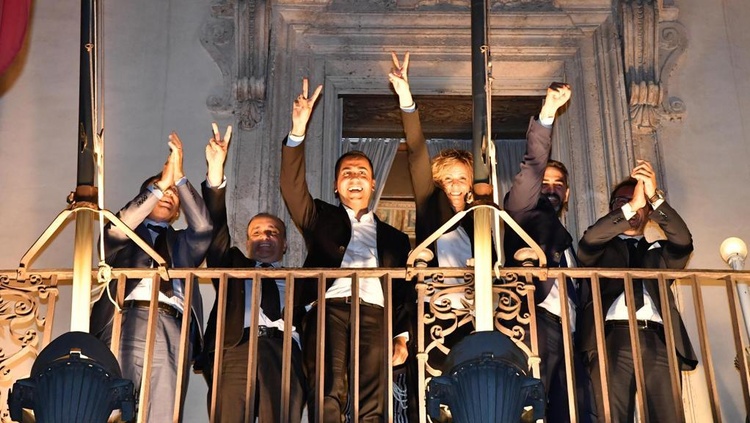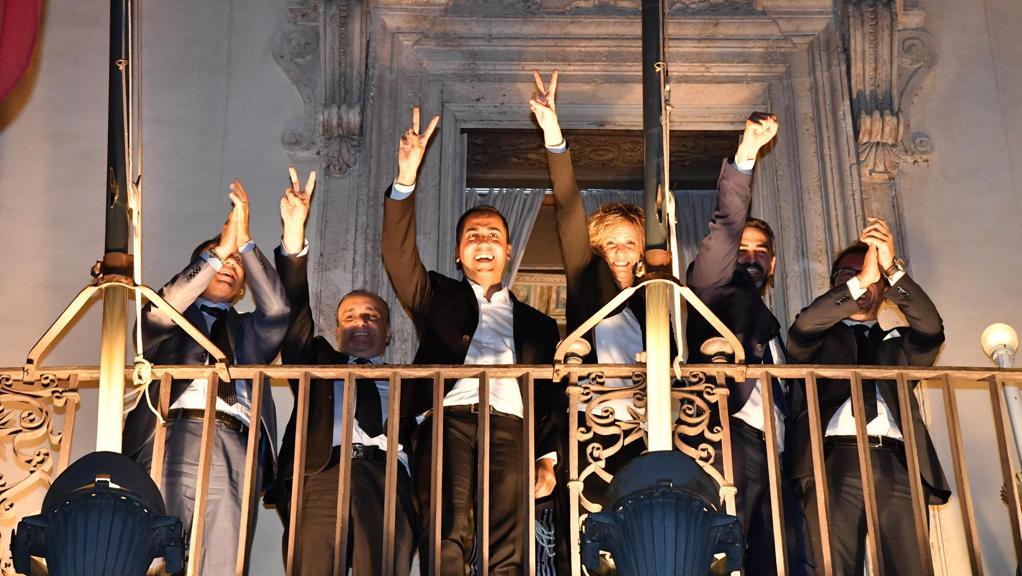However, the match played out on Thursday night is just one of the many which await Giuseppe Conte and his government.
Having won over the resistance of Italy’s economy minister Giovanni Tria, the new budget plan must be sent to the European Commission and the Italian Parliament by November 15.
Then, just five days later, Tria must present the budget in detail to both Chambers, including the entry and expenditure forecast for the next three years.
That will be the real moment in which the budget will be scrutinised by the opposition, a process which should be complete by the end of the year.
In the meantime, the battle with the European Commission will already have begun and the first outcome will be reached on November 30, when EU bureaucrats will make their amendments to the budget plan.
The Italian government is supposed to take the commission’s advice, changing the budget accordingly, but this is not likely to happen if the EU rejects Italy’s public deficit target, causing Rome to clash with the EU.
The final step in pushing the budget plan through is the so-called “Spring Package” in May, when the EU will release its country-specific recommendations.
However, by that time, member states will be busy campaigning for the European elections and the climate in Brussels could be completely different.
This is the long and complex road that the Italian budget will have to take to get through and deputy prime minster Luigi Di Maio should have kept that it in mind while celebrating on the balcony of Palazzo Chigi in front of a cheering crowd.
“Today we have abolished poverty! Today Italy has changed,” he exclaimed.
The elation felt by the Five Star Movement (M5S) is still lingering days after the meeting, despite the Italian stock market’s heavy losses on Friday.
Di Maio argued that it is an inevitable consequence which will soon dissolve.
“It is normal for the stock market to react to our budget plan”, he said.
“But I am confident because our budget is for the people and when it is released in detail, everyone will see our huge public investment plan.”
Italy’s coalition government has drafted a budget that raises the public deficit target to around 2.4 per cent of GDP for the next three years, much more than the initial target of 0.8 per cent promised by Paolo Gentiloni and the target of 1.6 per cent that the EU was willing to allow.
In monetary value, it translates to €27 billion, bringing the total budget amount to €40 billion.
€12 billion are predicted to be used to stop the rise of GST, while €13 billion are expected to be found through cuts to public spending.
A sum of the budget will be invested in combating the social hardship and poverty which have peaked in Italy during the last decade: the increase of basic incomes and pensions to €780 euros per month (€9 billion), pension reforms (€8 billion), and tax cuts for independent workers (€1.5 billions).
The remaining portion of the budget will focus on public investment.
The government claims that as a result of public investment, Italy’s economy will grow and make up the deficit target, gradually reducing public debt.
This budget plan represents a significant U-turn in the country’s economic strategy compared to those of previous governments and a significant change in the paradigm which guides the economic choices of EU.
It’s an innovation which produces uncertainty and triggers fear in the stock market, the bank system and the financial world.
Italian President Sergio Mattarella is the person who must guarantee the country’s debt sustainability.
The president is aware of the possible outcome of the coalition government’s stance, and therefore, insisted that Tria become economic minister.
Tria is thus considered by international institutions as the president’s spokesperson and a reference point from within the government.
His role is therefore crucial, and that is why recent rumours that he could resign are completely unreliable.
Tria’s role remains essential to both the Italian government and the EU in the coming months.
He will play the leading role, alongside European affairs minister Paolo Savona, in convincing Brussels that Italy’s budget plan will be, in the end, a win-win solution for both politics and finance.












